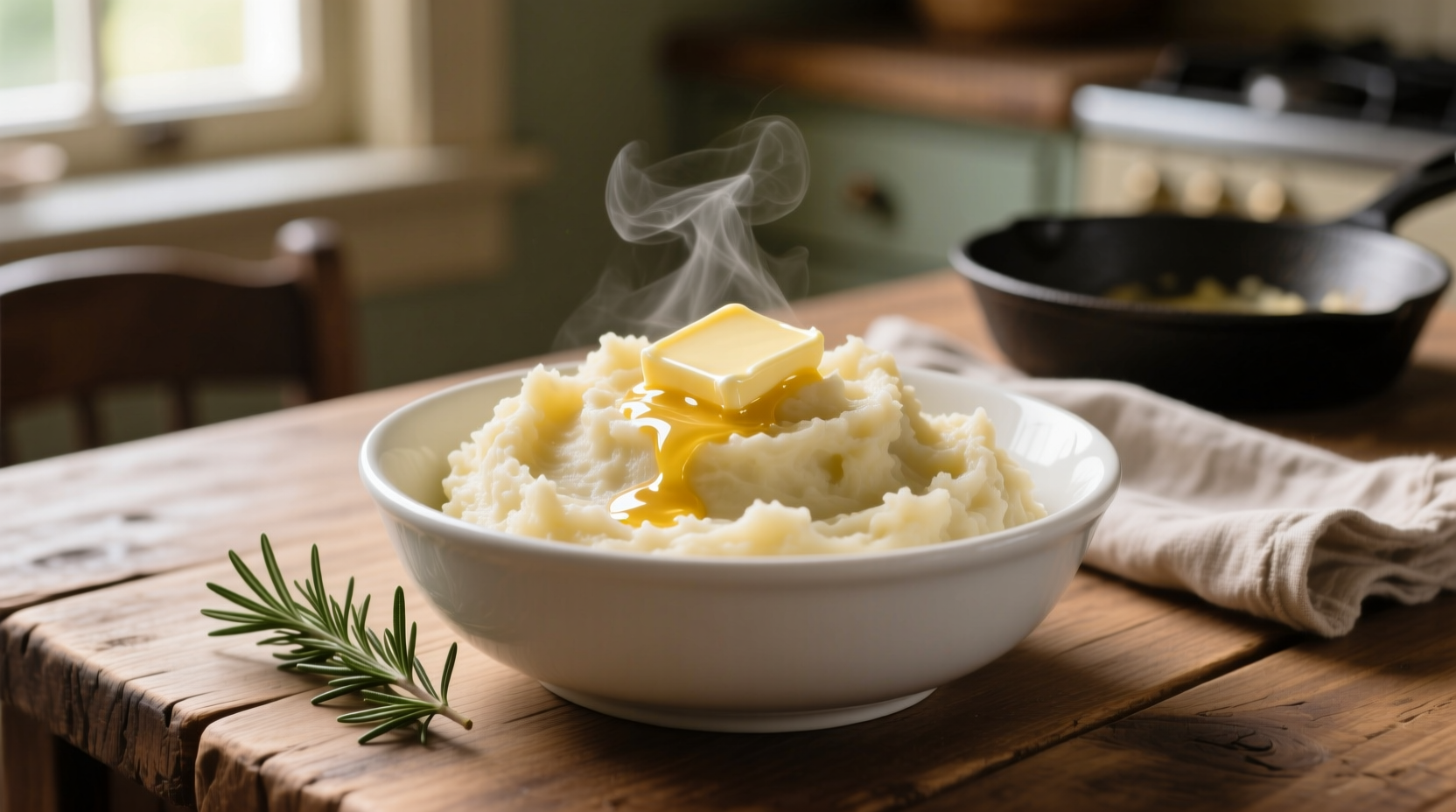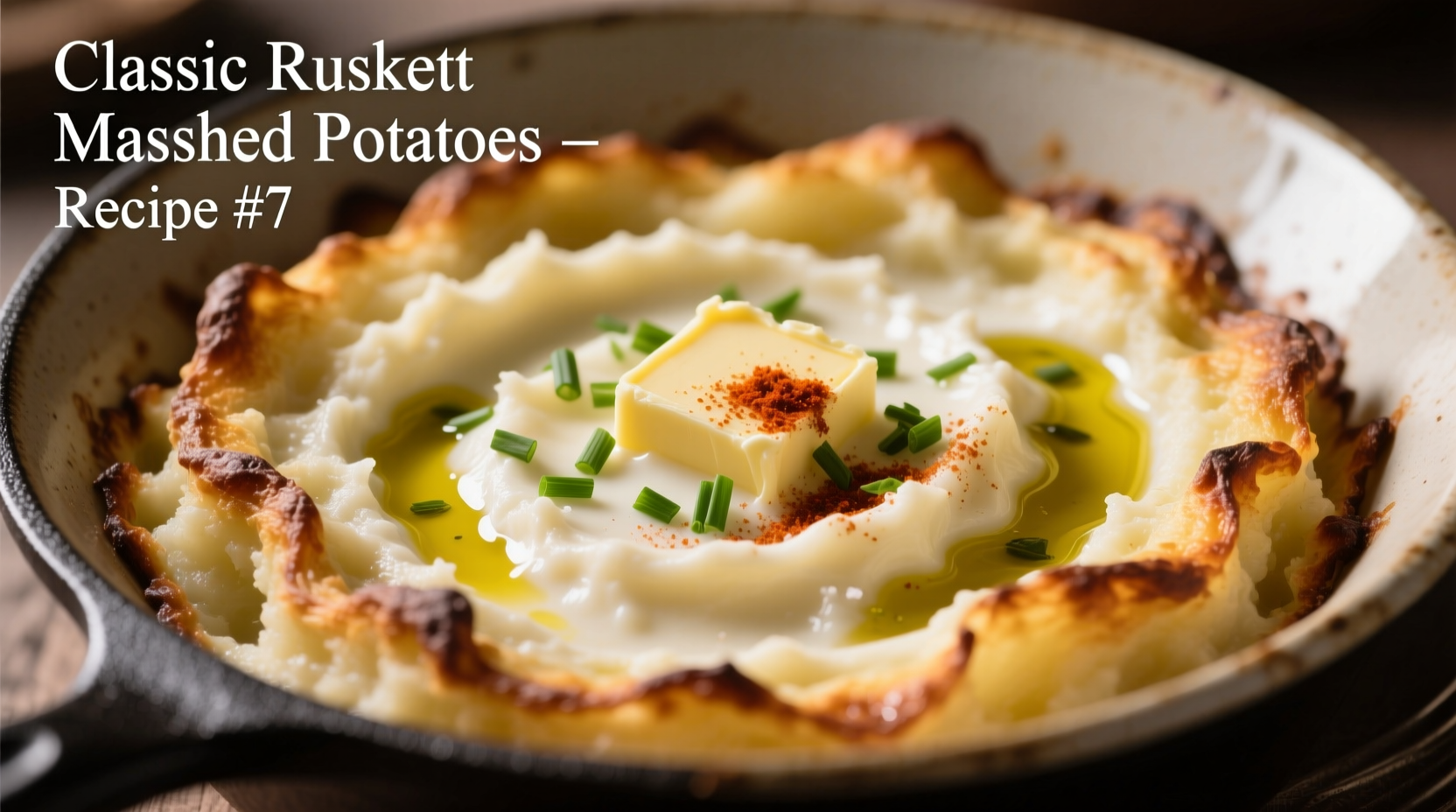Why Russet Potatoes Dominate Mashed Potato Perfection
When you're craving that signature fluffy-yet-creamy texture, russet potatoes deliver unmatched results. Their unique composition makes them ideal for mashing:
| Potato Variety | Starch Content | Moisture Level | Best For Mashing? |
|---|---|---|---|
| Russet (Idaho) | 20-22% | Low | ✓ Ideal (fluffy texture) |
| Yukon Gold | 15-17% | Medium | ✓ Good (buttery texture) |
| Red Potatoes | 12-14% | High | ✗ Poor (waxy texture) |
| Sweet Potatoes | 10-12% | Very High | ✗ Not Recommended |
According to agricultural research from the USDA Agricultural Research Service, russets' high starch-to-moisture ratio allows them to absorb dairy ingredients while maintaining structure. This creates that coveted light, cloud-like texture professional chefs prize.
Your Essential Russet Mashed Potato Toolkit
Before you start cooking, gather these critical tools that make the difference between lumpy disappointment and silky perfection:
- Ruffled-edge peeler (removes skin without wasting flesh)
- Large 6-quart pot with tight-fitting lid
- Food mill or ricer (critical for lump-free results)
- Heavy-bottomed saucepan for warming dairy
- Flat beater attachment if using stand mixer
Step-by-Step: The Professional Method
Preparation Phase: Setting Up for Success
Cut russets into uniform 1.5-inch chunks—this ensures even cooking. Soak in cold water for 15 minutes to remove excess surface starch that causes gumminess. Drain thoroughly before cooking.
Cooking Technique: The Temperature Matters
"Never boil potatoes vigorously," advises culinary expert Sophie Dubois. "Start them in cold, salted water (1.5 tablespoons per gallon), then bring to a gentle simmer (185°F/85°C). Boiling destroys cell structure, creating waterlogged potatoes that can't absorb dairy properly."
Cook until a knife slides in with no resistance (about 15-18 minutes). Drain immediately—leaving potatoes sitting in water makes them soggy.

Dairy Integration: The Science of Smoothness
Warm your dairy components to 140°F (60°C) before adding—cold ingredients make potatoes gluey. The ideal ratio:
- 1 cup warm whole milk or half-and-half
- ½ cup warm heavy cream
- 8 tablespoons (1 stick) unsalted butter
- 1 teaspoon kosher salt (adjust to taste)
"The key is gradual incorporation," explains Dubois. "Add dairy in three stages, mixing just until incorporated after each addition. Overmixing activates starch, creating that dreaded gummy texture."
Avoiding Common Russet Mashing Mistakes
The Lumping Trap
Russets' high starch content means they're prone to becoming gluey if mishandled. Always use a food mill or ricer—never a blender or food processor. These high-speed appliances turn russets into unappetizing paste within seconds.
Moisture Management
After draining, return potatoes to the warm pot for 2 minutes over low heat. This evaporates excess surface moisture that would otherwise dilute your dairy mixture. "This simple step makes the difference between creamy and watery," notes Dubois.
Flavor Variations Worth Trying
Classic Herb Infusion
Add 2 sprigs fresh rosemary and 3 thyme stems to your warming dairy. Steep 10 minutes, then strain before incorporating. The subtle herbal notes complement without overpowering.
Garlic Lover's Version
Roast 6 whole garlic cloves at 400°F (200°C) for 25 minutes until soft. Squeeze pulp into warming dairy. Avoid raw garlic—it creates harsh, uneven flavor.
Storage and Reheating Guidelines
Properly stored in an airtight container, russet mashed potatoes keep for 3-4 days in the refrigerator. When reheating:
- Add 1-2 tablespoons milk per cup of potatoes
- Warm gently over low heat, stirring constantly
- Microwave only as last resort (use 30-second intervals)
Freezing changes texture significantly—russets become grainy upon thawing. For best results, enjoy fresh or refrigerated.
When Russets Aren't the Right Choice
While russets excel for traditional fluffy mashed potatoes, they're not universally perfect. Consider these context boundaries:
- For potato salads: Use waxy red potatoes that hold shape
- For soups/stews: Yukon Golds maintain integrity better
- For vegan versions: Russets require more liquid, potentially diluting flavor
- For immediate serving: Russets need precise timing to avoid drying out











 浙公网安备
33010002000092号
浙公网安备
33010002000092号 浙B2-20120091-4
浙B2-20120091-4